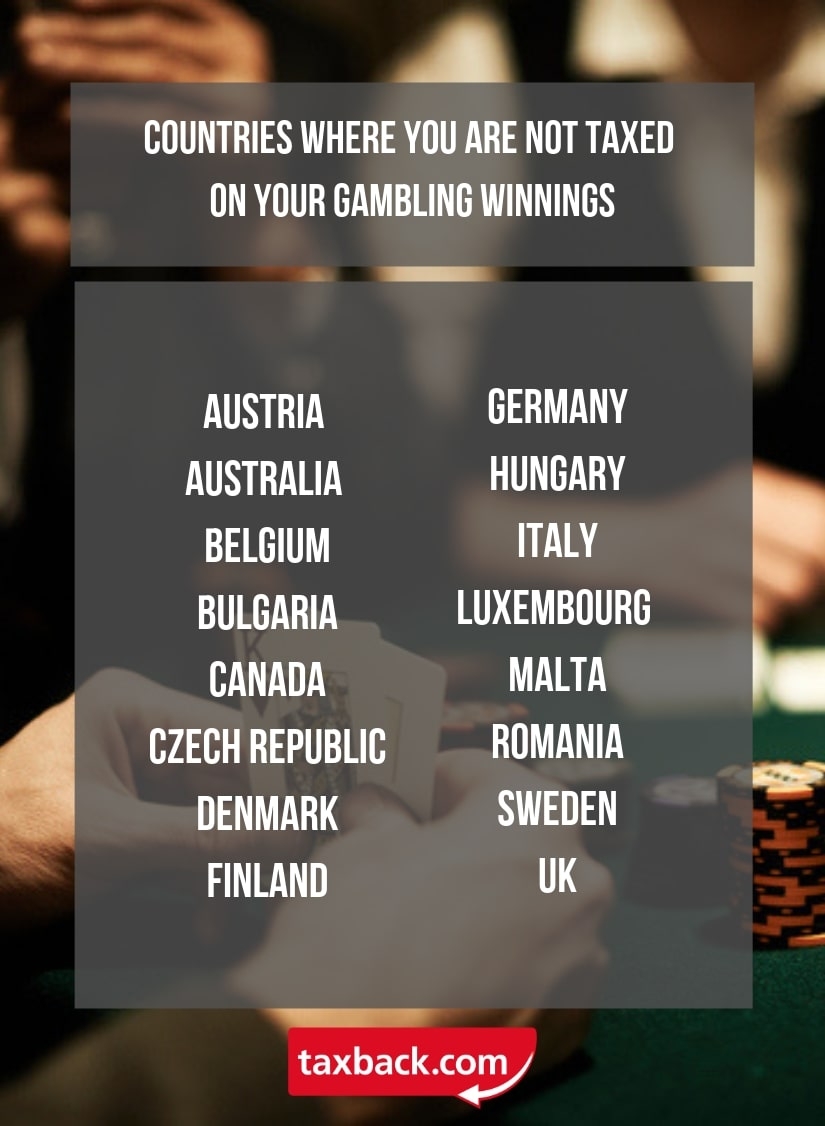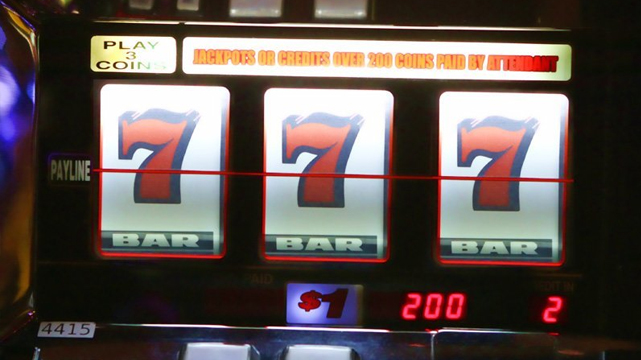Casino Winnings Tax Rate Wisconsin
More Articles
If you win a sweepstakes or contest prize, you will owe income taxes to Uncle Sam and perhaps your state. Prizes are considered taxable income regardless of whether the prize is in the form of cash, trips or merchandise. If you win a prize valued over $600, the sweepstakes or contest sponsor must report the value to you and the Internal Revenue Service on a Form 1099-MISC. You’re still supposed to report and pay tax on prizes under $600.
Find out what slot machines actually returned to the public in all U.S. See which states have the best-paying casino slot games and which have the lowest-paying casino slots. Includes slot machine payback statistics for all U.S. Casino/resorts, riverboats and Indian casinos. Withholding Rate from Gambling Winnings New Jersey Income Tax is withheld at an amount equal to three percent (3%) of the payout for both New Jersey residents and nonresidents (N.J.S.A. Withholding Rate from Lottery Winnings The rate is determined by the amount of the payout. Image: Casino.org American Tax Season Is Here. The US uses a flat 25% tax rate on all gambling winnings. Taxes are applied to all gambling, including sweepstakes and other prizes.
Addition to Income
Casino Winnings Tax Rate Wisconsin Dells
Prizes and awards will increase your tax bill, but the question of how much depends on the value of the winnings and the amount of your other income. Prizes are taxed as ordinary income. That means you add the prize value to the income you received from your job and other sources during the year. Sometimes, a sponsor will include a cash award to help cover taxes on the prize, but the cash also is taxable income to the winner. The prize value will increase your federal adjusted gross income, which likely will increase your net taxable income after you take your exemptions and deductions. The prize win could push you into a higher tax bracket. Your federal adjusted gross income is the starting point for most state income tax returns so the value of the sweepstakes prize within your federal AGI could increase your state taxable income.

State Taxes
You will have to pay state income tax on your winnings in 39 states. If you live in one of the 11 states that don’t tax sweepstakes prizes, you may be spared state income taxes. Alaska, Florida, Nevada, South Dakota, Tennessee, Texas, Washington and Wyoming have no state income taxes. Additionally, California, Delaware, New Hampshire and Pennsylvania don’t tax winnings on sweepstakes or other gambling. But if you live in a non-taxable state and win a sweepstakes based in a taxable state, you may have to file a tax return with the taxable state where the sweepstakes is based. If you are unsure about whether you will owe state tax on your big win, ask your state's tax collection agency.
Tax Withholding

Federal tax brackets are progressive, so portions of the winnings are taxed at different rates, and could be as high as 37%. State income taxes vary by location. Some states do not have a state income tax, while others may withhold up to 8.82%. The states that do not levy an individual income tax are. To prevent abuses and tax evasion, the IRS imposes some strict requirements on nonprofits involved with gaming activity—for example: you must report any participant’s winnings over a specified amount to the IRS on Form W-2G; you must withhold income tax from the winnings over specified amounts for certain games and pay it to the IRS.
If the sweepstakes prize is worth more than $5,000, the sponsor must withhold 25 percent of the prize value for federal taxes and may have to withhold state taxes as well. But if the prize is a car or other expensive merchandise, you may be required to give the sponsor the cash to pay the federal tax withholding before the sponsor will release the non-cash prize to you. For instance, if you won a $25,000 car, you may have to give the sponsor $6,250 for the federal tax withholding before the sponsor will give you the car. You may also have to pay state withholding up front. The sweepstakes sponsor could choose to pay the federal tax withholding, but if it does, the sponsor’s withholding rate is one-third of the prize’s fair market value.
Valuing Prizes
If your prize is a non-cash award such as a trip or a car, you will owe tax on the fair market value of the prize. There is no uniform method for determining fair market value. Neither the U.S. tax code nor U.S. Tax Court rulings have specified the proper way to set the fair market value of a non-cash prize. The sweepstakes or contest promoter will report what it considers to be fair market value. That figure may be different from the “approximate retail value” the sponsor cited in sweepstakes advertising. But the sponsor’s fair market value figure may be subject to dispute. For example, parties could dispute whether the fair market value of an automobile is the manufacturer’s suggested retail price or the discounted price the sweepstakes sponsor paid to buy the car.
Exempt Prizes
You can avoid all taxes on a prize if you refuse to accept it. A prize may not be taxable if it meets certain legal tests. To be tax-exempt, the prize must be in recognition of personal achievement in religious, scientific, literary, artistic, charitable, educational or civic affairs. You cannot have nominated yourself for the prize or submitted your own work for review. You can’t be required to perform services as a condition for receiving the prize. You cannot claim the prize for yourself but instead must assign the prize to charity. If you assign away the prize, you don’t get a charitable donation deduction. All these tests must be met to avoid tax on the prize.
- BananaStock/BananaStock/Getty Images
Read More:
Powerball prizes are subject to tax so it is not just a case of looking at the advertised amounts to see how much money you would receive if you won. The rate of withholding depends on how much you win and the jurisdiction in which you buy your ticket. A federal tax is levied on all winners of prizes greater than $5,000, while many of the participating states apply their own tax on top of this. In addition, some locations, such as New York City, levy a local tax on lottery winnings.
You can find out how much tax you might have to pay below. As it is such a complex issue, you should consult a financial expert in the event of a big lottery win so that you're fully aware of your tax obligations.
Federal Taxes on Lottery Winnings

Lottery winnings are treated as income in the United States, so your final tax bill depends on how much money you make in total in a year, not just the amount you win in the lottery. The following table shows the federal tax obligations for a Powerball winner filing as a single taxpayer. The rates you pay may differ depending on your individual circumstances.
| Prize | Federal Tax Obligations |
|---|---|
| $0-$600 | No deductions |
| $600.01 - $5,000 | Winnings must be reported on federal income tax form |
| $5,000.01 and above | 24-37%, depending on prize amount |
Federal tax rules are consistent across the U.S. You do not have to pay tax on any prize up to $600, but you must report your winnings to the Internal Revenue Service (IRS) if you win an amount between $600.01 and $5,000. You will be issued a W-2G form to complete with your tax returns.
A federal tax of 24 percent will be taken from all prizes above $5,000 (including the jackpot) before you receive your prize money. You may then be eligible for a refund or have to pay more tax when you file your returns, depending on your total income. If you win the jackpot you will be subject to the top federal tax rate of 37 percent. Players who are not U.S. citizens are subject to an initial federal tax payment of 30 percent rather than 24 percent.
Deductions for Gambling Losses
Playing the lottery is classed as gambling as far as the Internal Revenue Service (IRS) is concerned, which means that you are entitled to a tax deduction on any losses incurred. To file these deductions, you will need to keep an accurate record of your wins and losses, as well as any evidence of them, such as the tickets you bought. You must itemize the deductions on the tax form 1040, obtainable from the IRS website. The losses you deduct cannot exceed your income from all forms of gambling, including but not limited to horse racing, casinos, and raffles.
If you win the jackpot and take the annuity payout, the annual payments will be recorded individually in each tax year, and will count towards your gambling income for that year. This should be taken into consideration when recording wins and losses for tax deduction purposes.

State Taxes
In addition to federal taxes, your Powerball winnings may also be subject to state taxes. It is important to remember that the tax levied on your prize will not only vary by state but also depending on your individual circumstances.
The following table shows the rate of withholding for each participating jurisdiction, along with the threshold for when prizes start to be taxed at a state level.
| State Withholding | Jurisdiction | Threshold for State Tax |
|---|---|---|
| No state tax on lottery prizes | California, Florida, New Hampshire, Puerto Rico, South Dakota, Tennessee, Texas, U.S Virgin Islands, Washington State, Wyoming | N/A |
| 2.9% | North Dakota | $5,000 |
| 3.07% | Pennsylvania | $5,000 |
| 3.23% | Indiana | Undisclosed |
| 4% | Colorado, Ohio, Oklahoma, Virginia | $5,000 |
| 4% | Missouri | $600 |
| 4.25% | Michigan | $5,000 |
| 4.95% | Illinois | $1,000 |
| 3-5% | Mississippi | 3% for prizes from $600 to $5,000, 4% for prizes between $5,001 and $10,000, and 5% for prizes above $10,001 |
| 5% | Arizona, Iowa, Kansas, Louisiana, Maine, Massachusetts, Nebraska | $5,000 |
| 5% | Kentucky | Undisclosed |
| 5-8% | New Jersey | 5% for prizes above $10,000 and up to $500,000. 8% for prizes above $500,000 |
| 5.5% | North Carolina | Undisclosed |
| 5.75% | Georgia | $5,000 |
| 5.99% | Rhode Island | $5,000 |
| 6% | New Mexico, Vermont | $5,000 |
| 6.5% | West Virginia | $5,000 |
| 6.6% | Delaware | $5,000 |
| 6.9% | Montana | $5,000 |
| 6.92% | Idaho | Undisclosed |
| 6.99% | Connecticut | $5,000 (or winnings of $600 or more that are at least 300 times the amount of the wager placed) |
| 7% | Arkansas | Undisclosed |
| 7% | South Carolina | $500 |
| 7.25% | Minnesota | Undisclosed |
| 7.65% | Wisconsin | $2,000 |
| 8% | Oregon | $1,500 |
| 8.5% | Washington D.C | $5,000 |
| 8.75% | Maryland | $5,000 |
| 8.82% | New York | $5,000 |
Tax Calculator
Use the tax calculator below to calculate how much of your payout you would be taking home following the respective federal and state taxes that are deducted. Just enter the amount you have won and select your state. Then select if this was the jackpot or not, and if it was then choose whether you took the annuity option or cash lump sum.
Local Taxes
Casino Winnings Tax Reporting
In addition to federal and state taxes, many cities, counties and municipalities in the United States levy a local income tax. This can vary greatly depending on the location, but in all cases it will be applied on top of any other income taxes. New York City, for example, applies a local tax of 3.876 percent in addition to the top state income tax rate of 8.82 percent and the top federal rate of 37 percent.
This means that a New York resident who opts for the cash lump sum payout of Powerball’s starting jackpot will end up with a final payout of roughly $8.4 million, just 42 percent of the advertised $20 million (*During the Coronavirus pandemic, the starting jackpot may be lower than this) prize. Being aware of these rules before you make a prize claim can protect you from the shock of seeing millions of dollars slashed from your prize money.
Taxes for Lottery Pools
If you win a large prize as part of a lottery pool, you are still required to pay taxes on your winnings. Each member of the group will be liable to pay their share of taxes, so everyone will need to report the income when filing their returns. Some states make this easy, as they allow each member of a lottery pool to claim individually through a shared or multiple ownership claim. In these cases the prize money will be paid directly to each member of the pool and the appropriate taxes will be withheld at the point of payment.
It gets slightly more complicated when the entirety of the prize money is paid to one representative, who is then responsible for distributing the winnings to other people. In these cases, anyone receiving a share of the money who is not named as the actual winner will need to complete IRS form 5754 to report the income. This will need to be filled out by every member of the group except the named claimant before the prize money is distributed. Form 5754 must be filed by December 31st of the tax year in which the prize was paid.
In the event of a big prize win, you should contact your state lottery for further guidance about your tax obligations and what you need to do to report the income correctly.